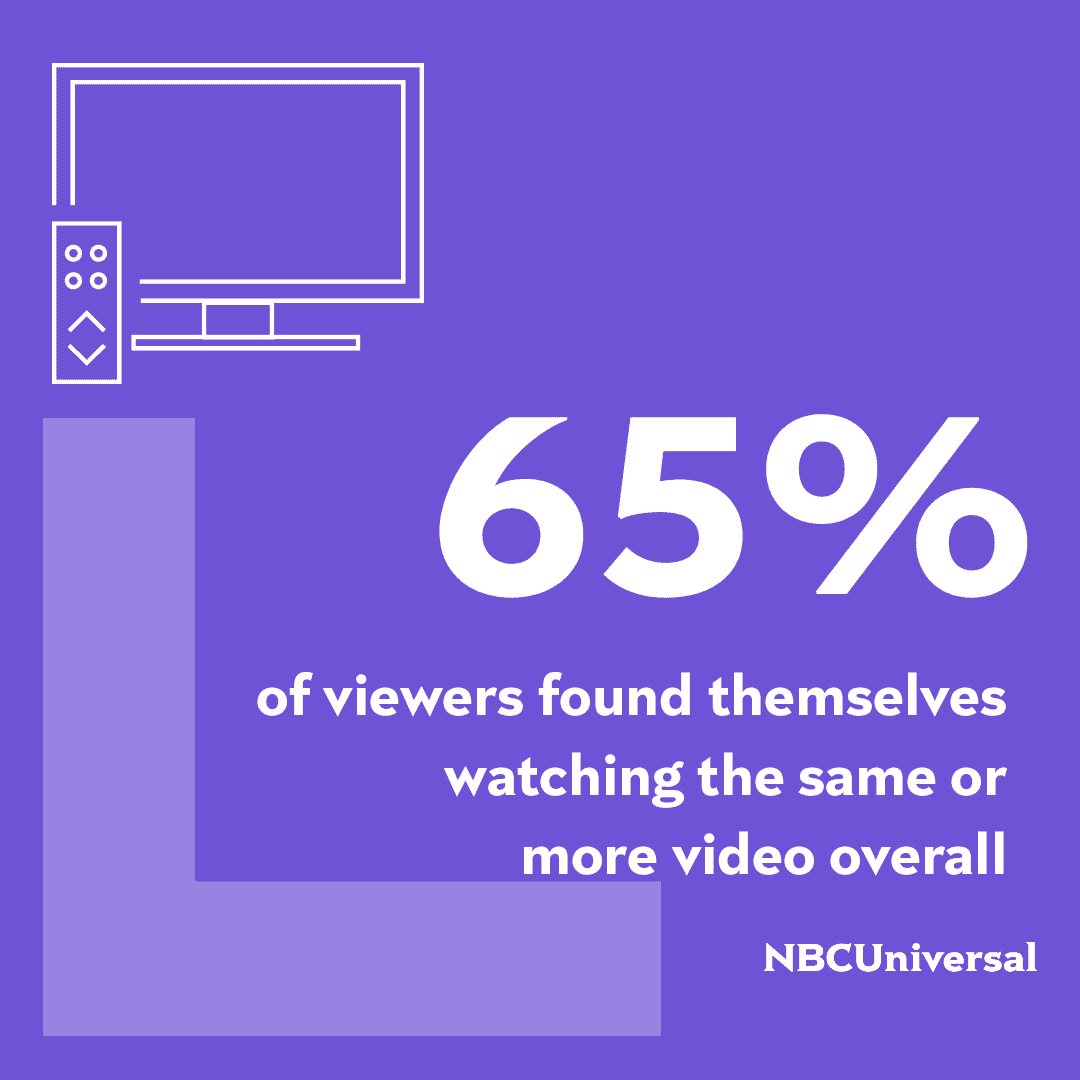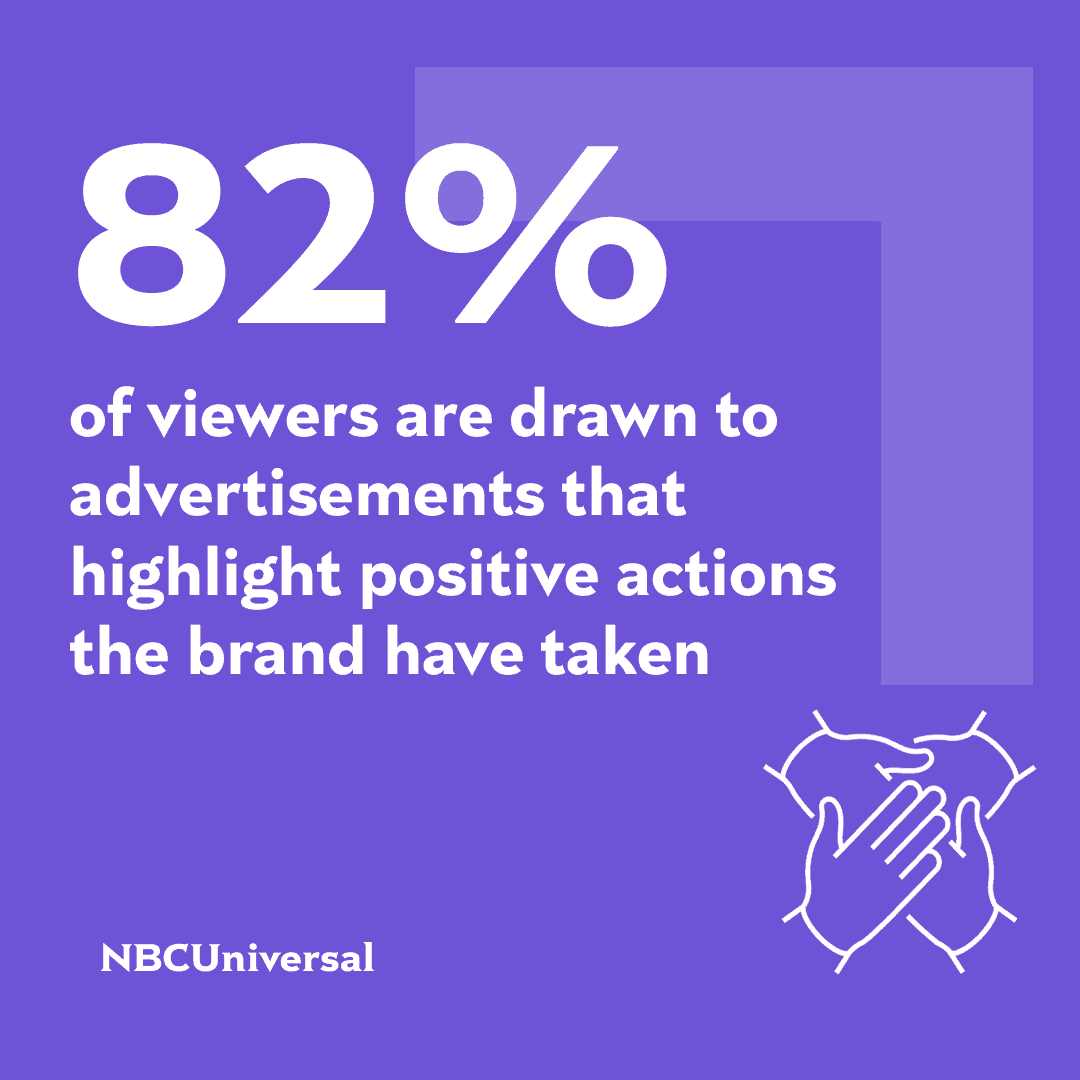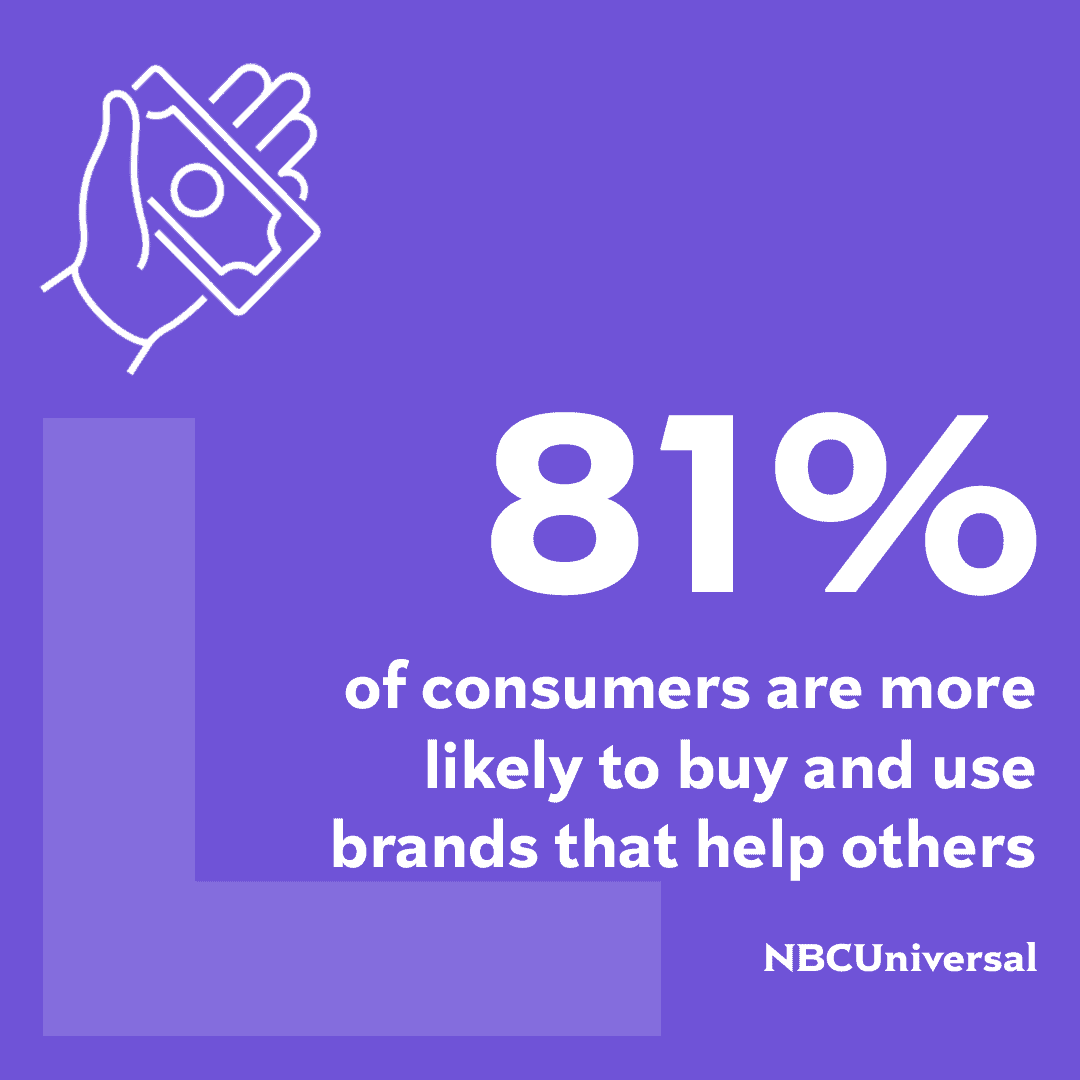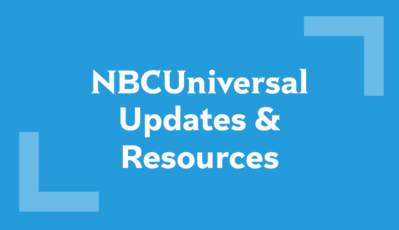In the early days of the pandemic, consumers weren’t just baking bread or stockpiling beans—they were watching far more video.

Moments of immense disruption challenge us all to rethink everything, including our relationship with viewers—and present us with an opportunity to transform. Already, consumers are changing how they spend their money, and their time: seven out of ten say they plan to be more thoughtful about the brands they support even once this crisis is behind us, while two thirds believe they will maintain their current levels of media consumption post-pandemic. In order to transform alongside them, brands must ask themselves this key question: how do we reach consumers in an authentic and sensitive way?
At NBCUniversal, it’s our responsibility to help our partners facilitate meaningful, lasting connections with audiences. Based on our research, we’ve found success comes down to three simple steps:
Acknowledge
Act
Assure
ACKNOWLEDGE
Unsurprisingly, consumers appreciate when brands reflect their reality—including the challenges we face today. More than two-thirds of consumers believe brands should create messaging that speaks to current events; just as many believe advertisements should account for the pandemic.

Further, one-third of consumers seek guidance from brands about how to get involved and make a difference themselves—for example, another Dove commercial including a countdown of the 20 seconds it takes to properly wash your hands, with the message, “In 20 seconds, you can help reduce the spread of the infection.”
ACT
Using the right words is certainly necessary—but it isn’t sufficient. Amid intersecting crises, consumers expect brands to back words up with meaningful action.

Savvy brands recognize that doing the right thing today can mean doing well tomorrow. Eighty-one percent of consumers believe that the choices brands make now will continue to matter to them post-crisis. And many of those consumers are putting their money where their values are: 89 percent said they will continue supporting brands that earned their trust during the pandemic; 51 percent reported they will stop purchasing from a brand that has not supported communities in times of need.
All of this is creating a new consumer landscape—one where people think critically about who they buy from, and how their purchases affect the world at-large.
ASSURE
Finally, consumers are looking for a break from the “trying times” messaging they’ve been hearing for months. The majority of them crave positive media moments that paint a brighter vision of the “new normal.” This includes ads that give people hope, help them feel safe, or make them laugh—which are desired by 46, 40, and 43 percent of viewers, respectively. Bud Light’s “Stay at Home Humans of Genius” ads—a nod to the company’s successful 1990s “Real Men of Genius” campaign—managed to tick all three boxes, offering viewers a dose of optimism, nostalgia, and humor.
Bud Light’s ads prove that companies don’t need to choose between acknowledging the realities of the present and talking about the promise of the future. And our research shows the most resonant advertisements are the ones that do both.
Ultimately, the numbers don’t lie: by acknowledging our circumstances, working to improve them, and assuring viewers that a brighter day will arrive, marketers can embrace disruption as an opportunity for reinvention. ( Tweet This) They can forge strong connections with consumers today, and influence their brand loyalty and buying habits long into the future. Most importantly, if marketers are willing to transform, they can make a meaningful difference in their communities, and kickstart the economic recovery our country so desperately needs.
Tweet This) They can forge strong connections with consumers today, and influence their brand loyalty and buying habits long into the future. Most importantly, if marketers are willing to transform, they can make a meaningful difference in their communities, and kickstart the economic recovery our country so desperately needs.
To read the full study, download the deck below.







